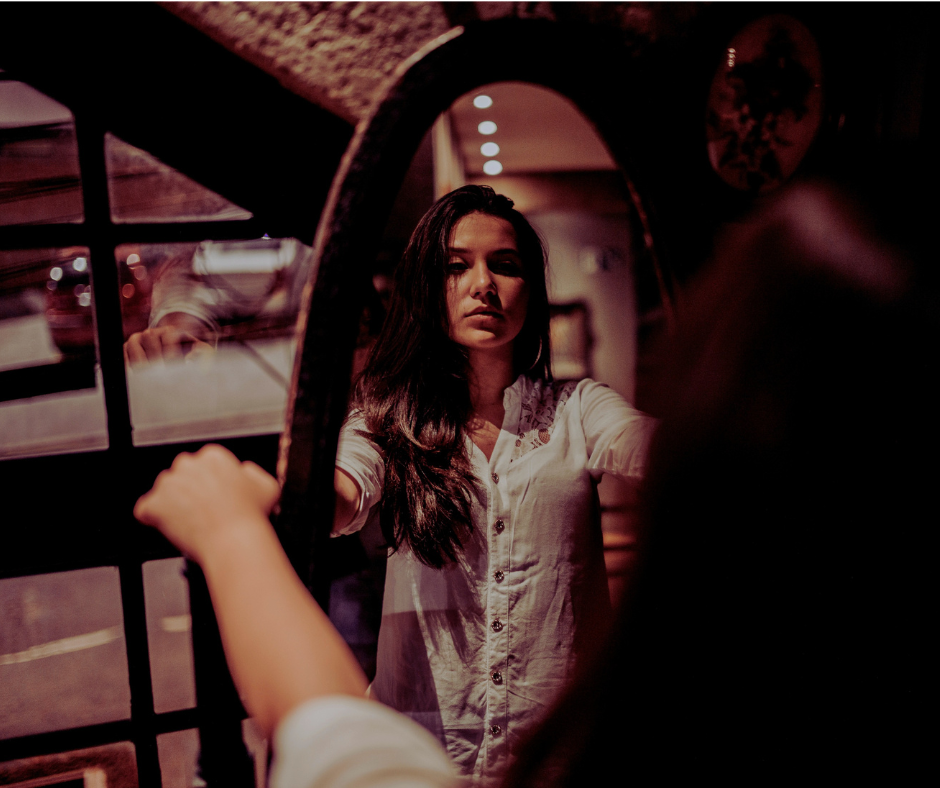How to Manage Postpartum Body Image Issues

Between recovering from giving birth, feeding your baby, and adjusting to new parenthood, your postpartum body image is likely nonexistent for a while. During the whirlwind of those first weeks and months after your baby arrives on the scene, it can be all too easy to forget you even have a body – you clothe yourself for warmth and function, shower as an act of desperation, and rarely look in the mirror.
But all too soon, you begin to notice your body again. How different it feels; how it doesn’t fit in your old clothes; how little it belongs to you now that it’s created and birthed another person… It’s a lot to deal with, and it’s understandable if you just want to live in oversized sweats and avoid your reflection for as long as possible.
It’s totally normal to feel some dissatisfaction with or alienation from your body after birth, but it’s all too easy for those feelings to evolve into more serious postpartum body image issues.
When does body image become a concern?
While nearly every woman experiences negative feelings about their postpartum body at some point, for half of us, our postpartum bodies become a source of serious negative body image.
Negative body image is defined as a pervasive and intense unhappiness with how your body looks, often accompanied by anxiety about how others will perceive you and sometimes leading to depression or disordered eating. Postpartum negative body image is when that unhappiness is directly linked to the effect of pregnancy and birth on your body’s appearance.
These negative feelings usually go beyond the simple “I don’t like my body” or “I wish I were thinner.” At its most intense, negative body image can cause fixation on and even the desire to harm certain ‘problem areas’ and can lead to disordered eating or postpartum depression.

What causes postpartum body image struggles?
A combination of physical change and hormonal fluctuations is the root cause of most postpartum body image struggles (although there are other factors, too, that can cause body image issues at any time in your life).
These feelings are, of course, contributed to by the society we live in, which is obsessed with women’s bodies, thinness, and “bouncing back” after birth – it’s rare that a celebrity steps onto the red carpet after having a child and the media doesn’t comment on her post-baby body. Diet culture and body judgment are everywhere, including in a range of media specific to postpartum life.
Postpartum women are already emotionally vulnerable, and these constant messages about how we ‘should’ look are especially damaging as a result. Not to mention, living in a body that looks different from what you’re used to can exacerbate feelings of being someone other than yourself, as if your body is reflecting the loss of identity that many of us experience when we become moms.
How to fight negative body image
- Focus on function over form. Your body made a person! When you find yourself obsessing over the desire to fit back into your old jeans, it can be helpful to look at your perfect baby and remember that your body created this little creature. It deserves a medal, not criticism.
- Give your body time to recover. It took nine months to make this baby inside your body – it may take at least that long for your body to feel like it belongs to you again. Be kind to yourself, focus on recovering from pregnancy and birth, and don’t rush the process.
- Find joyful movement. Trying to get ‘back in shape’ (whatever that means) can feel like a chore, especially when restriction is involved. Instead of dieting, try moving your body in a way that makes you feel good, both physically and emotionally. Yoga, biking, roller derby, paddle boarding – find what floats your boat and try to make time to do it regularly.

If you’d like some help coping with postpartum body image issues or anything else you might be struggling with, we recommend working with a mental health professional who practices cognitive behavioral therapy (CBT), which is super effective for self-image struggles. That’s why all Prospera coaches are trained in CBT techniques – we can help you achieve your goals faster and more effectively.
You don’t have to go it alone. If you could use a little extra emotional support (and honestly, what mom couldn’t?), why not give us a try? Book your free consultation today.
Content reviewed by Dr. Andrea Niles, Clinical Psychologist
Anne Godenham is a writer and editor with a passion for mental health awareness and accessibility


